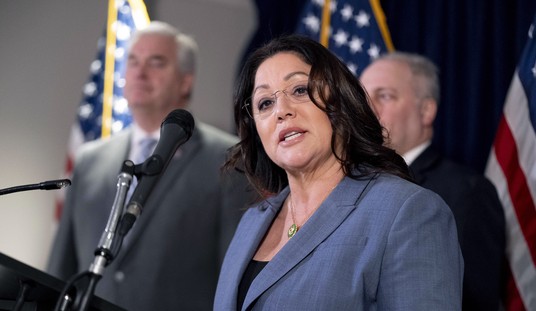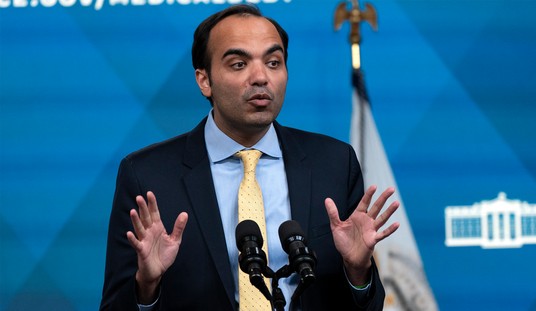The judge overseeing former President Donald Trump's Georgia election interference case has dismissed some of the charges against the 2024 Republican presidential nominee, dealing a damaging blow to Fulton County District Attorney Fani Willis.
Judge Scott McAfee, who's also presiding over the disqualification proceedings facing Willis, wrote in a nine-page court order Wednesday that six of the charges filed in the grand jury indictment must be quashed, including three against Trump.
New: As we await a decision from Judge McAfee on whether to disqualify Fani Willis, he has issued an order dismissing some charges in the indictment against Trump and others--but denies efforts to dismiss certain "overt acts" included in the indictment.https://t.co/jbV4sO7oVJ
— Anna Bower (@AnnaBower) March 13, 2024
The six counts, which have to do with soliciting elected officials to violate their oaths of office, can be summarized as follows:
- Count 2 alleges that multiple Trump co-defendants solicited elected members of the Georgia state Senate to violate their oaths of office on December 3, 2020.
- Count 5 alleges that Trump solicited the Speaker of the Georgia House of Representatives to violate his oath of office on December 7, 2020, "by requesting or importuning him to call a special session to unlawfully appoint presidential electors."
- Count 6 alleges that Trump co-defendants Ray Smith and Rudy Giuliani solicited members of the Georgia House of Representatives to violate their oaths of office on December 10, 2020.
- Count 23 alleges that multiple Trump co-defendants solicited Georgia state senators to violate their oaths of office on December 30, 2020.
- Count 28 alleges that Trump and ex-Trump chief of staff Mark Meadows solicited Georgia Secretary of State Brad Raffensperger to violate his oath of office on January 2, 2021, "by requesting or importuning him to unlawfully influence the certified election returns."
- Count 38 alleges that Trump solicited Raffensperger to violate his oath of office on September 17, 2021, "by requesting or importuning him to unlawfully decertify the election."
Recommended
See my post below for a more detailed breakdown. The charges dismissed include:
— Anna Bower (@AnnaBower) March 13, 2024
- 3 counts against Trump
- 1 count against Meadows
- 3 counts as to Giuliani
- 3 counts against Smith
- 1 count against Eastman
- 1 count against Cheeleyhttps://t.co/VZOrvmRTXB
The defense challenged the charges via special demurrer, which challenges the form of an indictment as ambiguous by asserting that the defendant is entitled to additional information or specificity. In general, demurrers provide a means for the accused to ensure that the state's charging documents satisfy the constitutional mandates of due process and the Sixth Amendment.
"The Court's concern is less that the State has failed to allege sufficient conduct of the Defendants," McAfee wrote. "In fact, it has alleged an abundance. However, the lack of detail concerning an essential legal element is, in the undersigned's opinion, fatal."
"As written, these six counts contain all the essential elements of the crimes but fail to allege sufficient detail regarding the nature of their commission [...] They do not give the Defendants enough information to prepare their defenses intelligently, as the Defendants could have violated the Constitutions and thus the statute in dozens, if not hundreds, of distinct ways..."
In other words, the allegations are not detailed enough in terms of sufficiently specifying "the underlying felony solicited."
For those asking whether the state can re-file these charges at a later date: Yes, they can seek re-indictment from a grand jury on these six counts.
— Anna Bower (@AnnaBower) March 13, 2024
Alternatively, the state could request a certificate of immediate review to appeal this decision. pic.twitter.com/WM57PMcP3M
However, many of the other charges remain, and McAfee noted that the Willis-led prosecution could seek a new indictment on the charges he dismissed. "This does not mean the entire indictment is dismissed," McAfee mentioned in the order's footnotes, adding: "The State may also seek a reindictment supplementing these six counts." Even if the statute of limitations has expired, the state receives a six-month extension from the date of McAfee's order to resubmit the case to a grand jury, the judge wrote.
So, the prosecutors can refile the charges with greater detail or appeal McAfee's decision altogether.
The Fulton County DA can remedy the defect in the previous indictments re: oaths of office fairly easily. Fani Willis just needs to find a constitutional law expert or two and the Office could be back to the Grand Jury in no time.
— Anthony Michael Kreis (@AnthonyMKreis) March 13, 2024
In August 2023, Trump and 18 of his allies were indicted by a grand jury on RICO-related charges accusing them of engaging in a criminal conspiracy to overturn Georgia's 2020 election results. Willis has since sought to try Trump ahead of Election Day.
McAfee is expected to issue a ruling soon on whether or not to kick Willis off the Trump case. Following days of evidentiary hearings and Oscar-worthy testimony, including the Democrat DA's self-destruction on the witness stand, McAfee announced that he would rule within the next few weeks or so. The two-week window for McAfee's disqualification decision expires on Friday.
Willis stands accused of misusing public funds for personal gain by hiring her longtime lover, Nathan Wade, to serve as special prosecutor. Through the "self-serving" arrangement, the defense alleges, Willis went on luxury "vacations across the world" with Wade bought by her boyfriend's taxpayer-funded earnings (in the ballpark of $650,000) for his years of work on the Trump case.

























Join the conversation as a VIP Member